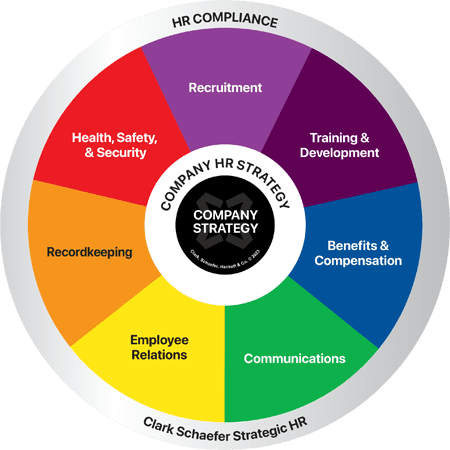How Can I Prevent Unethical Behavior On My Team?
Last Updated on August 3, 2022 / HR Compliance

HR Question:
I’m a new supervisor. Now that I have oversight of my team, I know it’s my responsibility to keep an eye out for unethical behavior. But what does that behavior look like? How can I prevent unethical conduct on my team?
HR Answer:
Ethics in the workplace can be a broad and, at times, intangible concept. At its root, unethical business practices include any behavior that violates the law, such as theft or violence, but can also include areas that are broader and more nebulous. According to The HR Digest, the five most common examples of unethical behaviors are:
- Employee theft. In 2012, one out of every forty employees was caught stealing from the workplace.
- Misusing company time. This may include an employee who spends the entire morning placing orders on Cyber Monday or a co-worker who clocks in for an employee who shows up late.
- Verbal abuse. This can include bullying co-workers or subordinates or harassing employees.
- Lying in the workplace. An example could be a sales employee who tells customers that a defective product has a flawless reliability record.
- Taking credit for someone else’s work. This could be an employee who takes credit for a co-worker’s idea for a process improvement and receives a bonus for a job well done.
Is Unethical Behavior Really That Common?
Studies suggest that unethical behavior is something that all managers must confront at some point in their careers. To illustrate this point, in HR Ethical Dilemmas by the Society for Human Resources Management, 30% of surveyed U.S. employees said they felt pressured to compromise their workplace’s ethics, a 14% increase from three years earlier. Almost half of those employees surveyed said they observed misconduct that violated their organization’s ethics standards.
The risks of unethical behavior in business can be devastating. For instance, bad corporate behavior can lead to the loss of valued employees and can discourage new recruits from applying. Employees want to work for a company that has values that align with their own personal values. They’re even willing to take a pay cut for it, as evidenced by MetLife’s recent study that found 89% of employees are willing to trade some of their salary (an average of a 21% pay cut) to work at a company whose values match their own.
But the impact isn’t just felt internally, as customers’ decisions can also be impacted by unethical behavior. According to Accenture’s Global Consumer Pulse Research, 62% of consumers consider a company’s ethical values and authenticity before making their purchasing decisions. Finally, unethical behavior can carry with it legal risk, resulting in fines, penalties, and even incarceration.
How Can a Company Prevent Unethical Behavior?
Companies can take steps to prevent unethical and unlawful behavior. This includes the following steps:
- Establish a Code of Conduct. Business leaders, including HR, must establish clear statements that define a company’s values, principles, and conduct.
- Train every employee on the company’s values, principles, and code of conduct. Training should be done in a way that helps each employee to see how their work and behavior support these principles.
- Establish a means for reporting unethical behavior. One of the most effective ways of enabling employees to report workplace ethics violations is to establish a 24/7 hotline that allows employees to report concerns anonymously and without retaliation. Those staffing the hotline should be a third-party, or employees who are removed from operational management. Concerns should be reported directly and confidentially to a senior executive or, in some cases, to a designated Board member.
- Include a question on business ethics in your employee engagement surveys. If employees respond less than favorably to this question, find out why through focus groups or department meetings.
- Share your Code of Conduct with your clients and suppliers. Let them know the company will abide by the Code while working with them. Provide them with a means to share feedback on any concerns regarding business ethics while working with the company.
As a supervisor, it goes without saying that your team is likely to emulate the behavior that you model. Therefore, it is important that you uphold the company’s values and Code of Conduct in your own behavior and ensure that your team members receive the appropriate training and understand the ethical standards they are expected to maintain.
Special thanks to Terry Wilson, SHRM, SPHR-SCP for writing this edition of our HR Question of the Week!
Have a new supervisor on your team? Put them on the road to success by signing them up for our Supervisor Training Series! Visit our Training and Development page to learn how we can help your management team to get off to the right start.







